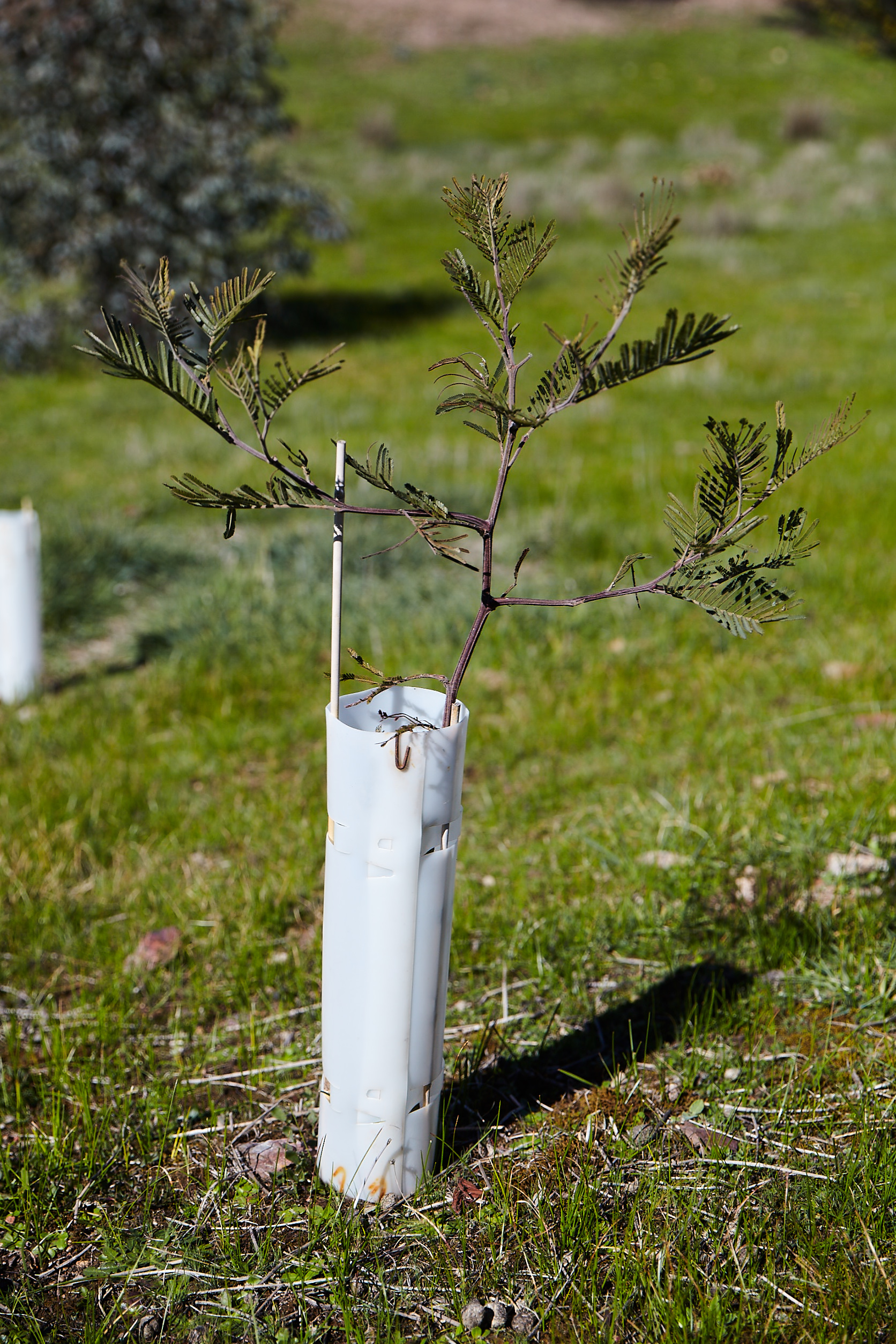New factsheets proving popular
Posted on 20 February, 2020 by Ivan

Following best advice on revegetation will give your plants the best chance of survival (photo by Gen Kay)
We developed the factsheets courtesy of funding from the North Central Catchment Management Authority. The factshets form part of our ‘Prickly plants for wildlife on small properties‘ project, which targeted landowners with smaller properties who are keen to manage their land as wildlife habitat, but were excluded from previous projects. Through this project we’ve helped numerous local landholders with smaller areas of remnant vegetation to protect and improve habitat on their land. We’ve supported landholders with on-ground actions such as revegetation planting, weed and rabbit control, and nest box installation, as well as delivering three popular community education events.
Many people contact Connecting Country regarding how to revegetate their land using native tubestock plants. There are numerous aspects to consider when using this technique, such as when to plant, how to prepare the soil, what to plant, and how to protect your plantings. The new revegetation planting factsheet covers all these topics and more, to help you give your precious native plants the best start in life.
Here is a brief outline of each of the four factsheets:
- Weed control. Weeds, or invasive plants, are one of the main extinction threats to Australia’s native plants and animals. Some weeds were introduced initially as garden plants, and others accidentally introduced and spread through seeds or plant material. Some native species become weeds if they spread aggressively beyond their natural range. To download – click here.
- Nest boxes for wildlife. A nest box is an artificial enclosure provided for hollow-dependent animals to live and nest in. Providing a well constructed and maintained nest box on your property can provide a supplementary home for native animals where natural tree hollows are missing. To download: click here
- Invasive pest animals. Invasive animals are a major threat to biodiversity and agriculture. They can cause long-term damage to ecosystems and have resulted in dramatic extinction rates of species across Australia. To download: click here
- Revegetation planting with tubestock. Planting within or next to existing bush land to provide habitat for native animals can be a satisfying endeavour. Taking time to plan and prepare your revegetation will give you the best chance of seeing your plants survive to maturity. To download: click here
Further information and factsheets on a variety of restoration topics can be found on the Connecting Country website – click here.






Leave a Reply